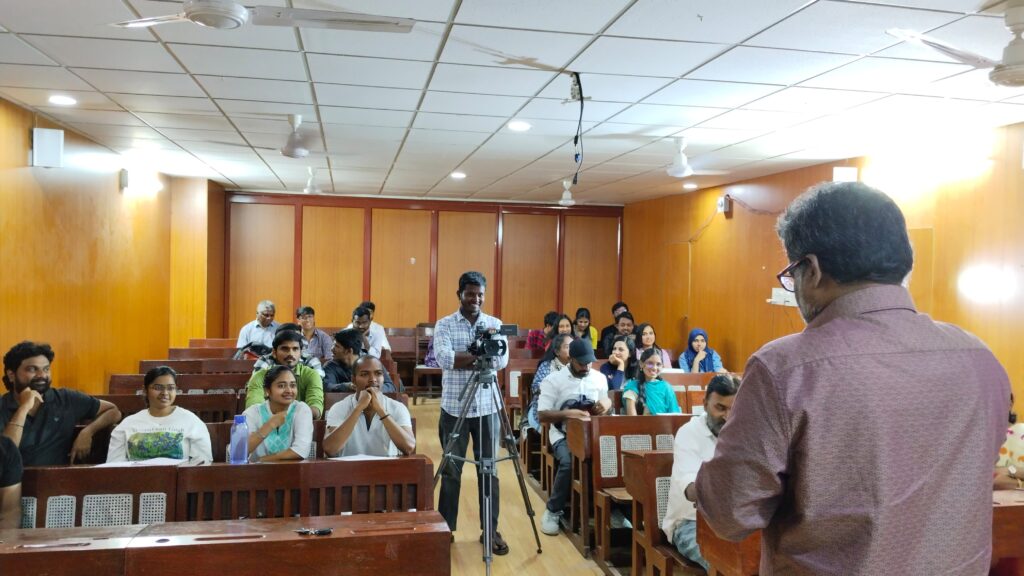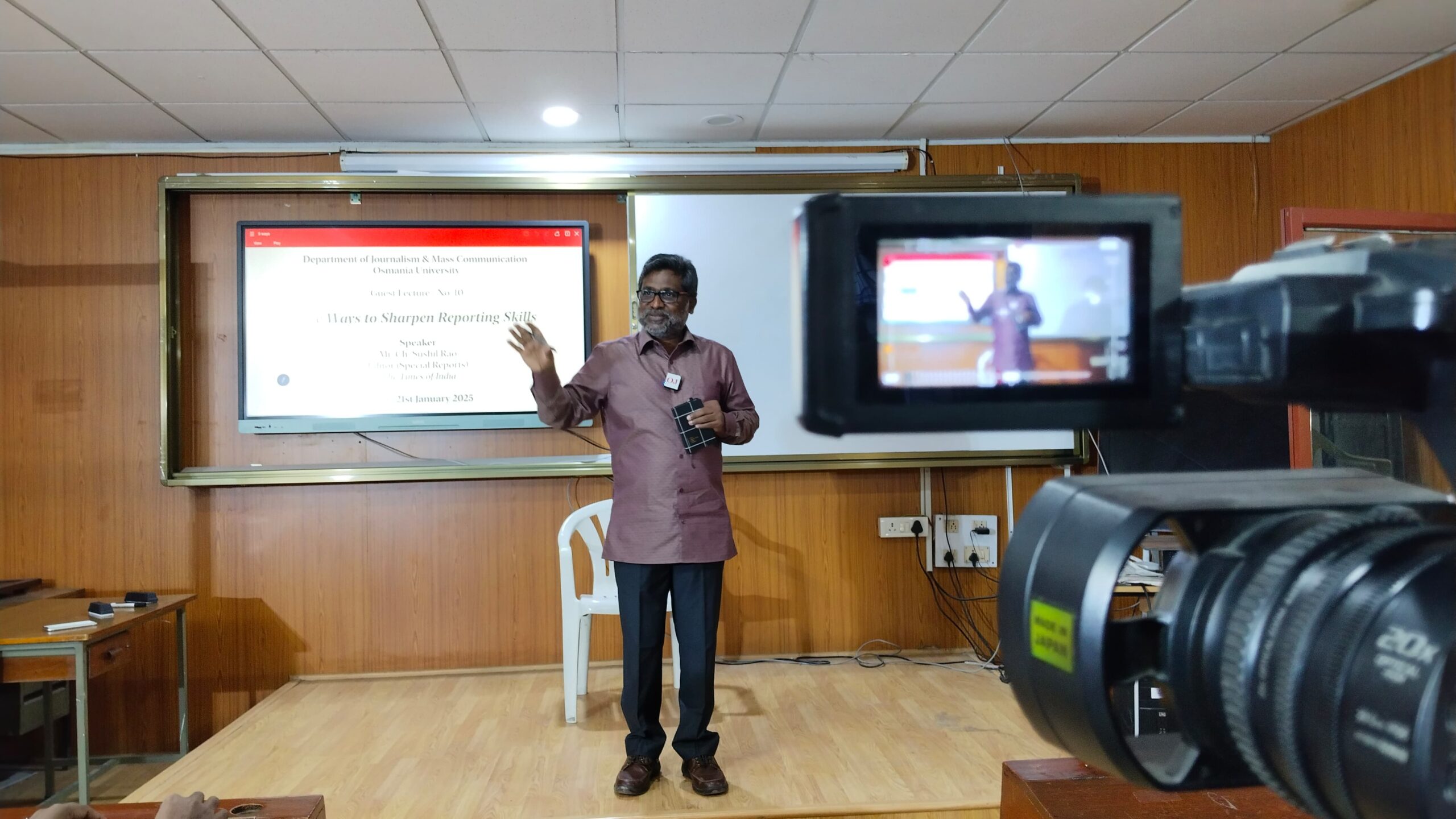H. Mallikarjun
Reporting conventions that seem too common turn quite important to abide by on the field, said senior journalist Ch. Sushil Rao, editor of special reports at The Times of India.
Delivering a guest lecture at the Department of Journalism and Mass Communication, Osmania University, on Tuesday, Mr Rao recounted several anecdotes from his 36-year career, laced with vital insights for aspiring journalists.
He set the tone for the lecture by centring the discourse around the ‘basics’ that are often over-shadowed.
Quoting Shakespeare’s iconic line “What’s in a name?”, he gave a witty twist to its original interpretation by emphasising that in journalism, asking the source’s name is fundamental part of reporting.
“It takes place a million times in a reporter’s career,” he said, explaining how the full and accurate name of the source is important to the authenticity of the report and credibility of the media house.
He recalled amusing situations where his subordinates and colleagues turned out beautifully written stories but with cooked up quotes from non-existent sources. “A boy from St.Ann’s School, Secunderabad”, or “Mr. Yadagiri” from some place in Andhra Pradesh drew laughs from students.

Mr. Rao also narrated a few embarrassing episodes, including one where his colleague asked former Lok Sabha speaker P.A. Sangma for his name at the end of an interview, and another where a visitor to a film set asked Soundarya her name.
He illustrated the importance of verifying names of interviewees or sources first thing in a conversation. He narrated his experience of almost interviewing singer Sudesh Bhosale assuming he was the famous Kumar Sanu.
In another instance, he said he had delivered a tired and frustrated “Put me to Manmohan Singh” order to the then Finance Minister himself. This episode, he said, should teach a reporter to be calm at all times and be courteous to any person on the other end of the line.
Knowing the age, address, and profession of the source add to the authenticity of the report, he said. He gave insights to students on how a reporter can ask such questions, deemed personal on the part of the source.
He opined that a reporter should be honest in gathering information irrespective of the road blocks faced or the output produced.
His recollection of the strategies he had devised and challenges he had faced while collecting information about former US President Bill Clinton’s visit to Hyderbad in 2000 underscored the obligation of the reporter to go beyond certain demarcations to fulfil duty, but also stressed on the need to be aware of the repercussions that may ensue.
He underlined the role of a rough draft as a bridge between the event and the report, and how a single word in such notes can help a reporter trace back to an entire thought or idea.
Once again reminding listeners that these were the skills that one ignores and later struggles with, he said “Organizations expect expertise from journalism graduates” expressing hope in students to thrive in the media sectors.
* * *
